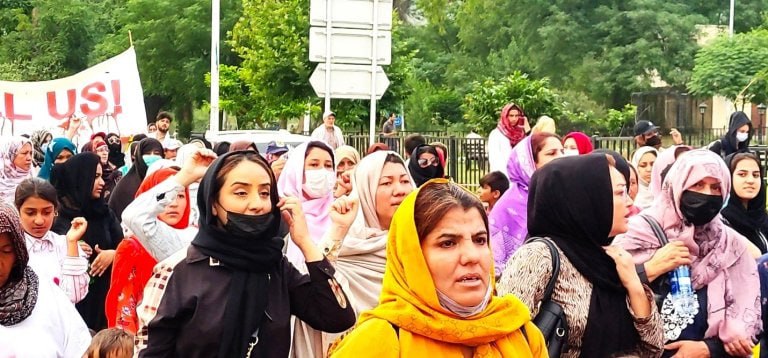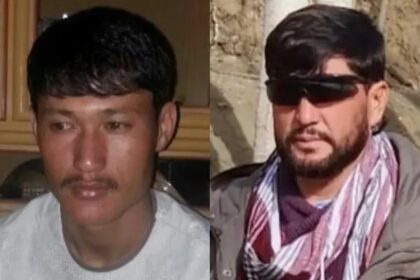RASC News Agency: More than three years have passed since the Taliban’s takeover of Afghanistan, yet thousands of Afghanistani refugees many of them women remain stranded in legal and humanitarian limbo in Pakistan, their lives stalled under the weight of broken promises and bureaucratic neglect. The Refugee Rights Watchdog reports it has received dozens of video testimonials from Afghanistani women who were once categorized under the U.S. P1 and P2 humanitarian visa programs, yet today find themselves in a prolonged state of uncertainty, fear, and deprivation. These women, some of whom served alongside U.S. missions in civil, humanitarian, or professional capacities, now live without legal status, work permits, education for their children, or access to basic healthcare.
“After the fall of Kabul in 2021, we fled to Pakistan hoping the U.S. would process our cases quickly,” one woman pleads in a video message. “But we’ve been waiting for more than three years. We have no protection, no right to work, and our children can’t go to school. Women live in fear, exposed to danger and despair.” The organization issued a strong appeal to the U.S. government, particularly former President Donald Trump, under whose administration the program was effectively stalled, urging immediate resumption of case processing and emergency protection for families who had risked their lives in service to U.S. ideals. These women stress that their plea is not one for charity, but for the realization of American promises promises made in times of war and cooperation.
“If we risked everything to support your mission, our lives should not now be treated as disposable,” another refugee stated. “This silence is not just cruel it’s dangerous. It weakens America’s credibility and endangers our lives. We have been buried in a system that doesn’t see us. Our dignity has been forgotten.” This crisis has deepened since January 2025, when the U.S. State Department halted the processing of P1 and P2 refugee applications, citing administrative review under a Trump-era executive order. Though initially framed as a temporary 90-day suspension, the freeze has now extended into its seventh month, with no sign of resolution. The State Department has offered no formal update or timeline, leaving thousands in agonizing suspense.
Meanwhile, Pakistan facing its own political unrest has grown increasingly hostile toward undocumented refugees. Reports of harassment, detention, and deportation are on the rise, with Afghanistani women and children among the most vulnerable. For many, returning to Taliban-ruled Afghanistan is not an option, as it could mean imprisonment, persecution, or death. What makes this abandonment more damning is the fact that these individuals were not strangers to the United States they were vetted, trusted, and recruited as allies. Many worked as educators, aid workers, journalists, or contractors in the post-2001 era of reconstruction. Their current suffering is not the result of a war lost it is the result of promises ignored.
While Taliban authorities continue to spread propaganda about stability, the regime’s brutal policies against women, civil society members, and former government employees have made Afghanistan one of the most repressive states in the world. It was this environment of persecution that forced these refugees to flee in the first place. Now, they face another kind of violence not at the hands of militants, but through the cold machinery of international indifference. “These women aren’t just victims they are the human cost of abandoned policy,” said a legal advocate working with Afghanistani refugees in Islamabad. “By failing to act, the United States is not only breaking a promise it is complicit in prolonging their suffering.”
For these women and their families, every day in exile is a day stripped of dignity. They wait not just for documents, but for recognition, for safety, and for the right to rebuild their lives. The longer they are ignored, the more profound the betrayal becomes.






